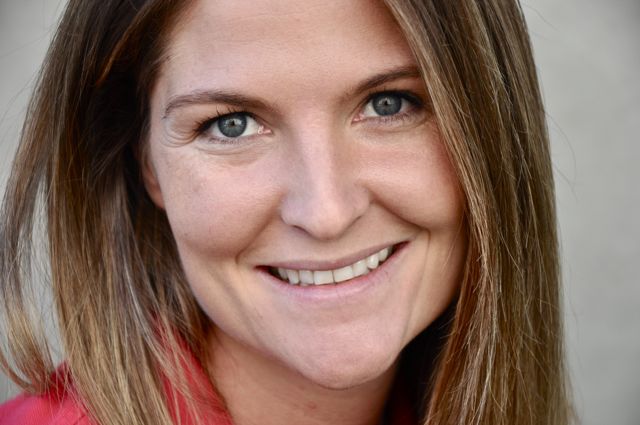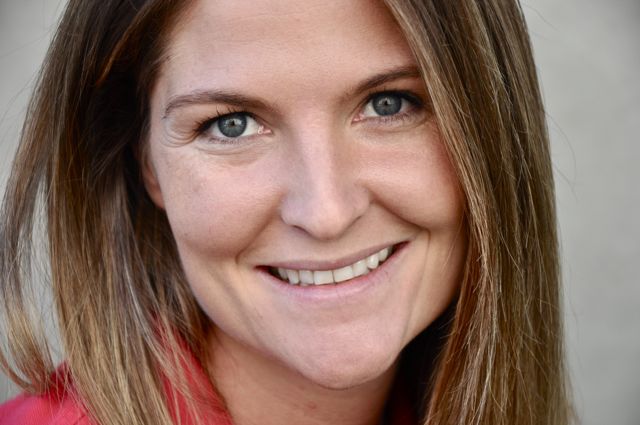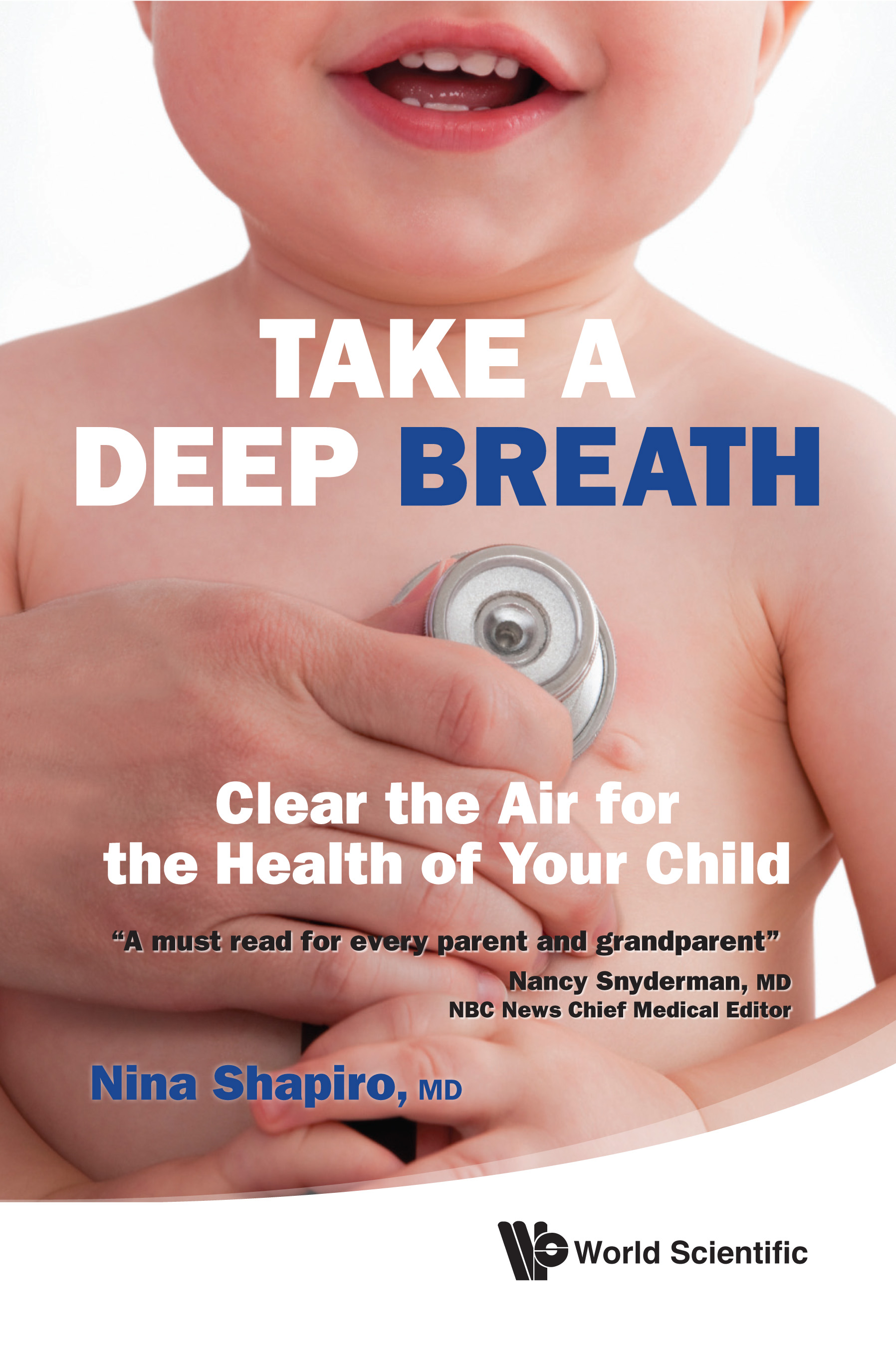posted by AJGpr | on parenting | No comments

AJGpr client, Emma Jenner, a child development and child behavioral specialist, best known for her role as host of TLC’s “Take Home Nanny” ha posted Part 2 of her book picks for kids on the Huffington Post. Here is the link for Nanny Emma’s Picks: The Best Books for Kids, Part II (ages 6-10).
Emma will have a parenting book out on Atria/Simon & Schuster in 2014.
posted by AJGpr | on parenting, social media | No comments

My client, Emma Jenner, a child development and child behavioral specialist, best known for her role as host of TLC’s “Take Home Nanny” is now blogging on the parenting pages of The Huffington Post. In her most recent post she details her book picks for kids aged 1 to 6.
Emma will have a parenting book out on Atria/Simon & Schuster in 2014.
posted by AJGpr | on health, parenting, web | No comments

Infant and Toddler Winter Illnesses
Why do newborns sound so congested? When should you worry about an infant’s cough? Are steroids really needed for a wheezy one year old? Does croup or bronchitis mean a child is more likely to develop asthma? Why do some toddlers have so many ear infections?
Nothing is more distressing to a parent than a young child’s illness. It may feel like one cold is hardly over before the next virus hits, and a cough or runny nose may seem like a chronic occurrence.
On Monday, February 18, 2013 at 12:00 pm EST, Dr. Nina Shapiro, Director of Pediatric Ear, Nose & Throat at UCLA School of Medicine, and the author of Take A Deep Breath: Clear the Air for the Health of Your Child., will explore the common respiratory illnesses encountered during a child’s early years, including colds, sinusitis, ear infection, strep throat, tonsillitis, flu, RSV, pertussis, croup, bronchitis and pneumonia.
She will review the symptoms of these common illnesses with a focus on treatments to manage the symptoms at home and when to worry or call the doctor. Young children typically encounter 5 to 10 colds or viral illnesses a year. The practical information shared by Dr. Shapiro in this webinar will come in handy for parents and caregivers of children from infancy through preschool.
Registration to this free expert speaker webinar is available to all interested parents and caregivers. You may distribute the registration link via email or social media.
posted by AJGpr | on fitness, parenting | No comments

Tonsillectomy Breakthrough
When does a recurring sore throat require a drastic treatment? AJGpr client, Dr. Nina Shapiro, the Director of Pediatric Otolaryngology and an Associate Professor at the David Geffen School of Medicine at UCLA was a guest on The Doctors to discuss if and when parents should consider scheduling a tonsillectomy for their child.
Watch this clip, where Dr. Shapiro demonstrates the older versus newer techniques for removing tonsils on The Doctors.
Dr. Shapiro is the author of Take A Deep Breath: Clear the Air for the Health of Your Child.
posted by AJGpr | on parenting, psychology | No comments

After the Newton, CT. shootings, the Oxford University Press turned to AJGpr client, Dr. Karen Schiltz to write about the assessment of children who have the potential to do harm to themselves and others. Here is her response.
“My child could be the next mass murderer. Alex has bipolar disorder. Last year, he pulled a phone off of the wall in the classroom and threw it at the teacher. They evacuated the whole class and my son was suspended for one day. He was suspended five times in nursery school for hitting children. Alex screams at home, swears, throws his toys against the wall, has hit his sister more times that I can tell, and can’t pay attention for the life of him now. He does not like the word ‘no.’ Alex is eight and in second grade. I’m afraid and something has to be done. I’m glad we are dealing with this now. I have to face this.”
I saw the parents of Alex Monday morning.
Like many of you, I was in shock and horrified about the slaughtering of 20 little children and 6 adults. I wondered: why did Adam Lanza not receive help for his condition or, if he did, was he misdiagnosed? Did his parents not follow through with providers? Did providers fail to address his problems? Were the parents in denial? Were teachers in denial?
“I’m scared. I see things at night like shadows and I hear soldiers that are coming to get me at night. I ran into daddy and mommy’s room. I saw something black when I was running to my mommy’s room. Someone is whispering to me too. I hear whispers and voices. I don’t understand what they are saying.”
Alex was eager to tell me about the voices and sounds he heard. He also told me that his parents were oftentimes angry at home and he was always scared of what could happen next.
His parents told me about several warning signs that increased in severity, intensity, and frequency as Alex aged. They were:
- Fears of attending school
- Hearing sounds such as whispers and soldiers conversing with each other
- Nightmares
- Poor frustration tolerance
- Problems managing his anger
- Real shifts in mood ranging from deep sadness to silliness
- Trouble concentrating
- Trouble sleeping
- Withdrawal from family and friends
- Wringing of hands and complaints of stomachaches
Do these parents need counseling? Does Alex need help as well? Will the parents accept my feedback after I assessed their child, interviewed Alex’s teachers and them, and conducted the testing?
Monday had a happy ending. These parents were not in denial nor did they deny Alex had a problem. They realized early intervention was crucial to helping their child. Alex’s parents were aware that their son’s marked troubles with managing his anger, low frustration tolerance, problems with focusing, and his ability to “go from 0 to 100” in a split second of rage were not normal. They deeply wanted a typical eight-year-old boy before it was too late.
It is not too late for lots of children. All of us, including teachers, physicians, and other care-taking and healthcare professionals need to listen to and observe children when something is not quite right. Taking the time to talk with children and educate parents about the warning signs of mental illness is critical.
Assessment and early intervention are the keys to unlocking the cause of a child’s pain and other problems such as a reading disorder. We can help children if we intervene at an early age and recognize the signs of mental illness such as mood instability, sadness, irritability, and anxiety. Many children need help and aren’t getting it. Recognizing a child’s struggles as early as possible is key to optimizing their success in life and overall mental health. The tragedy can be when it is not addressed in time to help either the victim or aggressor.
The bottom line is: we need to review the big picture of what is happening with our children and help parents advocate for their child when something is a little off. It was not too late for Alex and it shouldn’t be for your child either.
Karen Schiltz is the co-author of Beyond The Label: A Guide to Unlocking a Child’s Educational Potential and Associate Clinical Professor (volunteer) at the Semel Institute for Neuroscience and Behavior at the University of California, Los Angeles. She has over 26 years of experience assessing children and young adults with developmental, medical, and emotional disorders including the autistic spectrum and maintains a private practice specializing in neuropsychology in Calabasas, California. Dr. Schiltz blogs for Psychology Today at Beyond the Label.
Dr. Nina Shapiro on When to Worry About Snoring in Children on Hallmark’s Home and Family
2013
posted by AJGpr | on health, parenting, tv | No comments

Before the New Year, AJGpr client, Dr. Nina Shapiro, the Director of Pediatric Otolaryngology and an Associate Professor at the David Geffen School of Medicine at UCLA was a guest on the new Hallmark series – Home & Family — the topic — children and snoring. Here’s the clip.
Dr. Shapiro is the author of Take A Deep Breath: Clear the Air for the Health of Your Child.
posted by AJGpr | on fitness, health | No comments

It’s a New Year – New You! Everyone wants to get in shape and Reuters TV turned to AJGpr client, fitness expert — “Queen of Pilates” — Mari Winsor.
Mari Winsor, one of Hollywood’s most popular Pilates trainers is widely credited with popularizing this once-obscure workout and making it accessible to the public at-large. With the record-breaking and unparalleled success of Mari’s workout series and award-winning infomercials, Winsor Pilates became a household name. Thirty Pilates videos and over 50 million programs sold, later Mari’s groundbreaking dynamic workouts continue to help and inspire people across the country to take care of themselves, look better, live longer, and lead healthy satisfied lives. Today, fans of Pilates can join Mari’s “WINSORFIT CLUB.” For $10 a month, you can work out like a celebrity, in the comfort of your own home. Winsor Pilates comes to you! This first week trial is ONLY $1.
Mari’s studios remain premiere workout centers where one finds a continuous roster of A-list clients building their “core.”
posted by AJGpr | on health, parenting | No comments

A 2012 study showed that obesity is the most prevalent nutritional disorder among children and adolescents in the United States. Among children ages 2-19, about 1 in 3 are overweight and 1 in 6 are obese. For its 14th season weight loss reality show “The Biggest Loser” is targeting a new demographic: overweight teenagers.
My client, Natalie Digate Muth, MD, MPH, RD – a formerly obese child, a mother of a once-picky eater and a pediatrician is acutely aware of the epidemics of obesity and inactivity in our children. A registered dietician and widely recognized for her expertise in childhood obesity, nutrition, and fitness, Dr. Muth is the author of Eat Your Vegetables! and Other Mistakes Parents Make: Redefining How to Raise Healthy Eaters (April 2012).
Dr. Muth applauds “The Biggest Loser” for drawing attention to the childhood obesity epidemic and making significant changes to the show from the adult version to help avoid exploitation and unintended harm to the children. However, Dr. Muth says “this intervention is unlikely to contribute to meaningful weight management and lifestyle change for these teens in the long-term because arguably the most important factor in a child’s weight management success is mostly absent — the Parents! The parents have played a major role in the child’s onset of obesity and the parents are also the solution. The family is a crucial component that is mostly absent from “The Biggest Loser Childhood Edition,” at least what is portrayed so far. Plus, the parents are the adults who are supposed to be looking out for their kids — if they want to take the risk of letting their kid sink or swim in the spotlight of the American public, then they should be right out there with them. It really should be Family Edition.” Jillian Michaels said, “The focus of the teens’ transformation would be health — not weight or clothing size.” Dr. Muth believes this “healthy approach” starts with the parents.
Recently, Dr. Muth appeared on Yahoo! Shines show Away We Grow to talk about the parents role in combatting childhood obesity. Here is the clip.
posted by AJGpr | on public releations | No comments

AJGpr loves to read blogs about public realtions and we are a fan of PR in Your Pajamas recent post – 10 Times-Tested PR Skills That Will Never Go Out oF Style. Here is what PR professional Elena Verlee has to say:
Here at PR in Your Pajamas, we often talk about PR trends and the new demands they place on PR professionals. These fast and frequent changes keep us on our toes, requiring us to develop new skills on the fly.
But in this post, I’d like to go back to basics. Let’s remember the time-tested, essential PR skills we need. These skills are so important, so foundational, that I dare say they have and will continue to withstand the test of time. They transcend technology and fads.
Good Old-Fashioned PR Skills
1. Writing
Forget what they say about how people no longer read these days. Even if the majority of your audience prefers video to text, you still need to know how to communicate by putting words on paper.
I’d like to point out two specific types of writing that we need to know and master to succeed in PR. The first is journalistic writing. Knowing what’s important, and communicating the essential parts first. Writing in a way that grabs the attention and interest of readers immediately. If you’re more of a creative writer, don’t despair. Journalistic writing can be learned.
The other type of writing we need is copywriting. Copywriting is simply selling in print. It’s using words to hook your audience, align with their personal goals, and motivate them to do what you want. Copywriting is applied, not only in the written word, but also in radio and video. The basis of copywriting is persuasion, so if you know copywriting, you also inadvertently become a more effective persuader.
2. Interpersonal Skills
PR is all about interacting with others. You need to build rapport and effectively relate with the C-suite (whether your own company’s or your client’s), technical experts, sales people, the marketing staff, journalists, customers. Strong people skills will open many doors for you, and make PR work much easier. On the other hand, if you hate interacting with people, you’ll probably hate PR work.
3. Negotiation
Negotiation skills are also essential. You negotiate with decision makers to get their buy-in on the PR campaign. You negotiate a story with journalists and editors. If you know how to create win-win situations, you’ll be successful in PR.
4. Media Awareness
Can you be good in PR and dislike actually consuming media — watching TV, listening to the radio, surfing websites, reading the news? I doubt it.
In PR, we need to know all about the media. What media are available in what formats, who runs them, who consumes them, what content they provide, and who creates the content. These things are location and culture-specific.
Aside from knowing the media, you also have to be able to think like the media. You need to have a nose for news. Be able to put yourself in a journalist’s shoes. Can you sniff what will become the next big thing? Then you’re one step ahead of your competitors.
5. Research
PR practitioners need to learn tons of new information with each new client or campaign we have. It’s necessary to know how to find the information you need. Speed reading comes in handy for this. More importantly, you must have the ability to evaluate the information you do find and “connect the dots” – synthesize them in a useful form.
6. Strategic Thinking
Thinking strategically includes the ability to set objectives and formulate a plan to achieve them. It also means taking calculated risks, and recognizing opportunities and maximizing them. In PR, where the solutions aren’t always straightforward, a strategic thinker can create opportunities where none appear to exist.
7. Attention to Detail
You have to anticipate needs and problems before they arise — and be ready for them. By being detail oriented, you think of the smallest things, including those that may not be so important, but could spell disaster if neglected. Think typos on press releases, forgotten appointments with journalists, and having enough copies of your media kit. Small stuff, yes, but someone’s got to stay on top of them!
8. Management
Aside from interacting with people and communicating persuasively, as a PR practitioner, you’re also a manager. You manage resources, time, and people, including yourself. You have to be realistic with your budgets, know how to mobilize human resources, and produce results.
9. Statistics and Measurement
As if being a good writer weren’t hard enough, PR professionals also need math skills. You measure and monitor inputs, outputs and results, so you need a good head for numbers. Understanding statistics and data — and knowing how to use them for high-impact communication — is a critical PR skill that will remain relevant long after your latest smartphone or tablet has become obsolete.
10. Business Sense
Finally, PR pros need to have good business sense. We don’t do PR for PR’s sake but to help contribute to the bottom line of our or our client’s business. Having business acumen is what you need to be taken seriously by clients or the C-suite.
posted by AJGpr | on public releations | No comments

AJGpr is on Manta. In fact, we asked the question “How Best To Use Manta for Small Businesses?” and found the answer in blog by Stephanie Taylor Christensen that she wrote for BusinessNewsDaily.com.
But another great reason to be on Manta is you get these fabulous tips sent you by email like:
Get More Readers with Compelling Subject Lines
![]()
or
How to Rate Your Online Brand Image
Just another reason to get on the Manta bandwagon.
Recent Posts

Online Dating: The Grown Woman’s Guide || Read More
January 9, 2019

“Some things are non-negotiable,” says Parenting Expert, Betsy Brown Braun || Read More
December 20, 2018

Cheating in a Relationship: Does Kissing Count? || Read More
December 20, 2018

Pilates Can Help Improve Your Golf Game || Read More
May 12, 2017

Atomic Pilates and Fitness – The Workout That Your Body Needs || Read More
April 17, 2017

